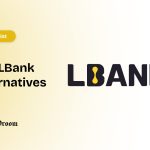El Salvador was the first country to adopt Bitcoin as a leader tender. The country’s journey in Bitcoin adoption is a case study for the entire financial space. At first, financial experts across the globe were skeptical about El Salvador’s Bitcoin Strategy, but over time the country proved how accepting innovative technologies can boost economic growth and solve national-level financial problems.
The government implemented various initiatives such as Chivo e-wallet and 200 Bitcoin ATMs to enhance Bitcoin adoption in the country. Additionally, the country created over 200 Bitcoin ATMs and also has an ambitious plan to develop the world’s first “Bitcoin city”.
El Salvador adopted Bitcoin as a legal tender to solve key financial issues such as financial inclusion and high remittance fees. The government aims to attract foreign investments, increase tourism, and improve cross-border payments by adopting Bitcoin.
In this article, we will delve into El Salvador’s Bitcoin adoption journey and explore how Bitcoin transformed and escalated its economic growth. So without further ado, let’s get started.
El Salvador Bitcoin Adoption
In September 2021, El Salvador shook the world by adopting Bitcoin as a legal tender to promote financial inclusion and provide efficient remittance payments. This decision was made by President Nayib Bukele to address key national financial problems such as financial inclusion and remittance fees.
Initially, the decision by the country to adopt Bitcoin as a legal tender was heavily criticized by financial experts internationally. However, the move was praised by the crypto community, and some renowned analysts called it a step toward innovation and inclusion.
With this move, the government of El Salvador aimed to bring more people into the financial system, as more than 70% of the the country’s population had no access to banking services.
Bitcoin Bring Cross Border Payment Solution to El Salvador
Remittances were another reason for making this crucial decision. Remittances are money sent back home by individuals who work abroad. In El Salvador, many people work abroad and send money to their families for their daily livelihood.
Remittances were one of the main sources of income for the country’s citizens. Each year, citizens receive millions of dollars in the form of remittances, which are subject to high fees due to the traditional finance system. These systems took a large sum of the money received by the citizens.
Here enters Bitcoin, which provides easy and faster transactions and improves the cross-border payment system. The government facilitates platforms like the Chivo wallet, through which people in El Salvador can receive remittances faster and with lower fees compared to traditional financial services.
Criticism and Challenges Regarding Bitcoin Law
The bold move by the El Salvador government gathered a lot of attention across the globe. The law faced immense challenges and criticism. Furthermore, the local people also protested against it as they feared accepting this new volatile asset. The International Monetary Fund (IMF) has also warned the country about Bitcoin’s volatile nature and the risks associated with it.
In response to all this criticism, President Nayib Bukele argued that this move would bring many financial solutions and make El Salvador a hub of innovation and foreign investments. This proves that the Bukele have full confidence in Bitcoin’s potential.
Despite criticism from the financial industry, the country received significant support from the international cryptocurrency community. The community believes it will lead to mainstream adoption of Bitcoin and it has proved to be true also. This became one of the biggest debates of that time. In support, crypto advocates shared pictures of local people making purchases using Bitcoins.
Impact on The El Salvador Economy
Slow and steady, Salvadorans adopted Bitcoin as their legal tender and made it part of their daily lives. Moreover, it also positively influenced large corporations and local businesses. Food chains such as Pizza Hut, Starbucks, and McDonald’s implemented a crypto payment system to attract crypto customers. However, there are still some challenges and complexities that need to be solved by the government, as local people have low literacy regarding the technicality of Bitcoin.
Localities, street vendors, and local businesses are very slow to adopt Bitcoin. The reason behind this is their lack of technical knowledge and fear of Bitcoin’s volatility. However, people whose family members work abroad have started using it for remittances.
2021: The Beginning
The government started taking various initiatives to increase awareness about Bitcoin payments. One of the initiatives was the establishment of the Chivo Wallet, the government’s official digital wallet, launched in October 2021. It provides features like instant conversions to US dollars and cash withdrawals through Bitcoin ATMs. However, the wallet was instantly criticized by the industry regarding its features.
In addition, users stopped using the platform after getting the sign-on bonuses. According to a Financial Times report, in the first week, only 0.0001% of platform transactions were in Bitcoin.
This was the same time when the government began their Bitcoin acquisition and held about 1,801 valued at $66 million as of January 2022. After this, Bukele escalated the game and announced that the government would utilize sustainable geothermal energy for Bitcoin mining. The president also announced that they would build the world’s first Bitcoin City.
2022: Year of Challenges
It’s been a year since the country adopted Bitcoin, but still, some reports suggest that people in El Salvador weren’t using it much. The reason behind that is a lack of digital skills among citizens. The 20% of users who have access to the Chivo app didn’t use their $30 bonus, and 61% of users stopped using the platform after utilizing the bonuses. Moreover, Bitcoin was used in only 1.9% of remittance payments.
This was considered a bad time for the country as they delayed the “Volcano Bonds” project, and due to the Bitcoin crash, it lost 70% of its value. President Bukele spent approximately $150 million on Bitcoin, which is 4% of the nation’s reserve, and it lost half of its value in mid-2022.
Experts predicted that the country would default on its debt. Despite all these drawdowns, President Bukele stood tall and announced that they would cut public spending and acquire more Bitcoins during the dip. To address the financial issues, the financial minister stated that there was no loss on Bitcoin as they hadn’t sold any Bitcoin during the crash.
2023-24: Years of Up And Down
2023 and 2024 are the years when El Salvador experienced both successes and failures. The government’s plan was for Bitcoin to be used in all types of transactions, but the goal wasn’t fully achieved. Moreover, the hacking of hundreds of Chivo wallets has developed fear among the citizens. The mass adoption was slowed due to a lack of Bitcoin awareness.
Despite all this, the country witnessed some major financial developments. By the end of 2023, the government’s Bitcoin holdings increased by $3.7 million, and in March 2024, the investment had a 50% profit with Bitcoin reaching over $69,000.
In December 2024, the International Monetary Fund (IMF) announced that they had an agreement with El Salvador for a financial support package worth about $1.4 billion (approximately £1.12 billion). The package, known as the Extended Fund Facility (EFF), is utilized to help countries with financial problems.
Under this agreement, the country agreed to reduce its role in the Bitcoin market. Businesses will not be forced to accept BTC payments. It will be optional for them. Moreover, the agreement highlights that there will be limitations on Bitcoin-related activities, meaning that the public sector will reduce its engagement in Bitcoin transactions or investments.
Despite all these challenges, Stacy Herbert, the director of El Salvador’s National Bitcoin Office, said the country would increase its Bitcoin buying speed.
How To Track El Salvador’s Bitcoin Holdings
Through Nayib Bukele Portfolio Tracker users can track El Salvador’s national Bitcoin reserves and Bukele’s investments. The website provides all real-time updates about El Salvador’s Bitcoin holdings and explores government Bitcoin Strategy. Besides this users can also explore Bitcoin value and other stats like profit and loss.
At the time of writing the El Salvador government had 6 067 Bitcoins with dollar costs averaging $46085.30 per BTC. The current portfolio value is approximately $608.40 million showcasing El Salvador’s Bitcoin holdings growth.
Final Thoughts
El Salvador’s Bitcoin adoption was filled with both victories and challenges. By adopting Bitcoin as a legal tender the country is able to address key financial problems such as financial inclusion and high remittance fees. However, the journey has some major obstacles such as the volatile nature of Bitcoin, local protests and lack of Bitcoin literacy among citizens.
Despite all these hurdles the country and their President Nayib Bukele have a strong belief in Bitcoin’s potential to boost their economic growth. The government is making continuous efforts to aware people of Bitcoin’s potential and adopting other blockchain technologies as well.
Moreover, the country’s Bitcoin holdings are given some good returns. EL Salvador is not doubled its Bitcoin acquisition rate. The country aims to acquire more and more Bitcoins in 2025 and heads towards the era of financial growth.


















